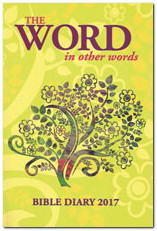The WORD
Heb 7,25 -8,6 / Mk 3,7-12
Jesus withdrew toward the sea with his disciples. A large number of people (followed) from Galilee and from Judea. Hearing what he was doing, a large number of people came to him also from Jerusalem, from Idumea, from beyond the Jordan, and from the neighborhood of Tyre and Sidon. He told his disciples to have a boat ready for him because of the crowd, so that they would not crush him. He had cured many and, as a result, those who had diseases were pressing upon him to touch him. And whenever unclean spirits saw him they would fall down before him and shout, "You are the Son of God." He warned them sternly not to make him known.
IN OTHER WORDS
Having heard about the healing ministry of Jesus, people from many towns came to Him. Some three years later, the same crowd pressed on Jesus not asking for His healing but demanding his death on the cross. Why is it that the crowd who used to follow Him is now asking for His death? When the people trooped to Jesus, it was because they wanted to be healed — of physical illness. They did not seek Him and gather around Him because they longed for spiritual healing. They did not believe nor accept Jesus as the Son of God and Redeemer.
Jesus is the Healer and we should come to Him for our healing. But He is the Healer first and foremost of our soul — and not of our body. Healing the people of their physical illness was only a prelude to His teaching about Him healing humankind of spiritual illnesses.
How about us? Do we come to Jesus only when we are physically sick? Let us remember that a person can be physically healthy but spiritually sick — like when the heart is full of anger, hatred, or envy, lust for power and pleasure, greed for wealth and popularity — and many other evils lurking in our hearts.
A Person who is spiritually sick needs a Redeemer. He needs the healing ministry of Jesus because a person who is spiritually sick is not capable of loving. "Hiram sa Diyos andaking buhay . . . Kung di ako umibig, sino ako?" And as a popular song says it: "Without love, I am nothing, nothing at all." We need Jesus to cure us spiritually and empower us to love for it is only when we love that we can be fully human and fully alive.
- Fr. Ernie M. Lagura, SVD (USC-Cebu City)
The Word in other words 2017
An annual project of Logos Publications, The WORD in Other Words Bible Diary contains daily scripture readings and reflections written by priest, brothers, and sisters of the three congregations founded by St. Arnold Janssen (the SVD, SSpS, and SSpSAP). It hopes to serve as a daily companion to readers who continually seek the correlation of the Word of God and human experience.


